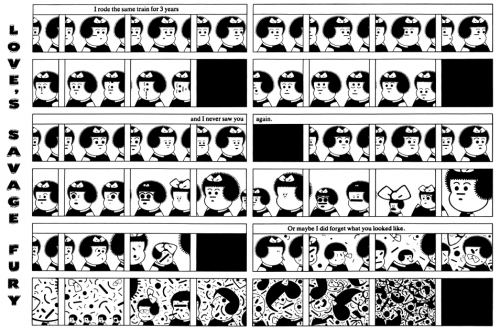I Like What The Hell Is Going On Over Here
Jean-Luc Godard just might accept//that fucking Oscar//after all.
You need to go outside, says Lapham’s — they says a lot of good things to say.
Reading back issues of the NY Times, found this great little Glenn gem.
Who doesn’t believe in intellectual property? Jean-Luc Godard.
“Whose arm is this?” She said, “That’s my mother’s arm.” Again, typical, right? And I said, “Well, if that’s your mother’s arm, where’s your mother?” And she looks around, completely perplexed, and she said, “Well, she’s hiding under the table.”
– Errol Morris on anosognosia and much much more, in five parts. Starts here.
CALLING ALL HEARTS: Buy this book now.

Looking, now?
Okay. So Justin Taylor’s debut book with HaperPerennial–Everything Here Is the Best Thing Ever–was recently reviewed in the NYT. It will not be that hard, with that bump, to make this book a NYT Best Seller, which would obviously be a monumental event for Justin and these stories. I implore you: if you haven’t already, but this book from Amazon.com or your local bookstore THIS WEEK. Even if you have a copy already. I bought two more. This could be huge for Justin, this community, and good literature.
Op-ed: End the University as We Know It

In the NYT today, Mark C. Taylor (no relation), the chair of the religion department at Columbia, argues that “GRADUATE education is the Detroit of higher learning.” He outlines a six-point plan for restructuring how graduate (and, later, undergraduate) educational institutions are structured and how they operate. He makes a number of good points–and a few I’m ambivalent about–but here’s one that especially resonated with me:
The dirty secret of higher education is that without underpaid graduate students to help in laboratories and with teaching, universities couldn’t conduct research or even instruct their growing undergraduate populations. […] In other words, young people enroll in graduate programs, work hard for subsistence pay and assume huge debt burdens, all because of the illusory promise of faculty appointments. But their economical presence, coupled with the intransigence of tenure, ensures that there will always be too many candidates for too few openings.
He’s talking about the more traditional kind of academic, but I think the point is a salient one for MFAs and other creative degrees as well. The idea that all, or even most, of the people who specialize in a creative discipline will then be in a position to make any sort of living at the practice of that discipline is at best a willful delusion, and at worst a pernicious lie.

